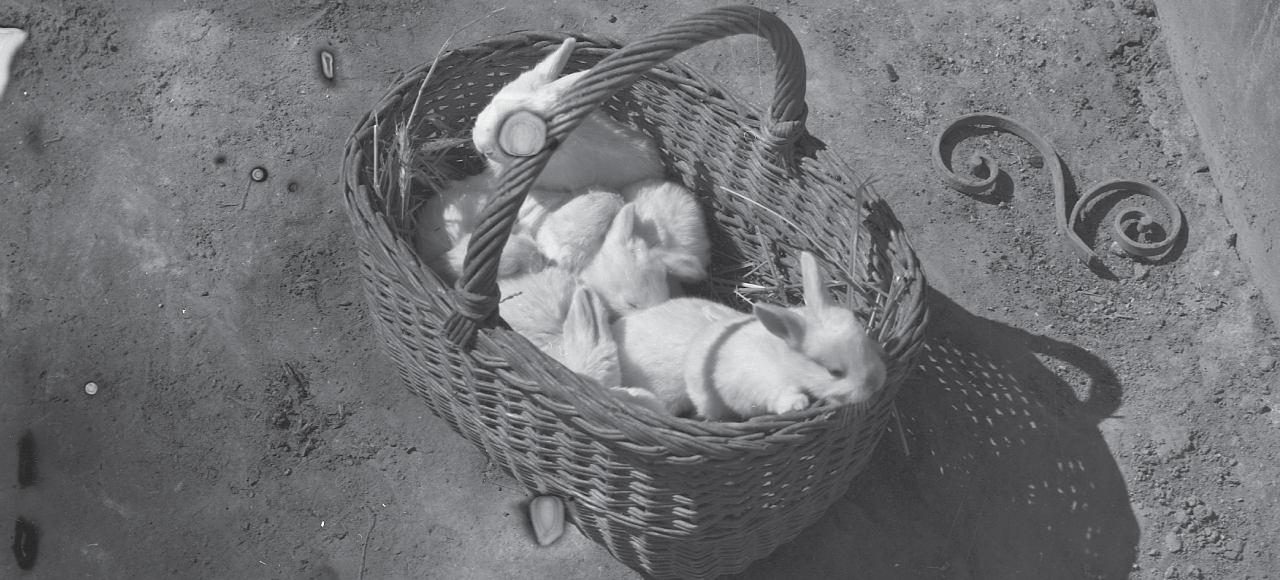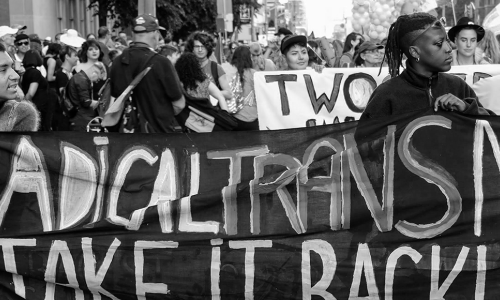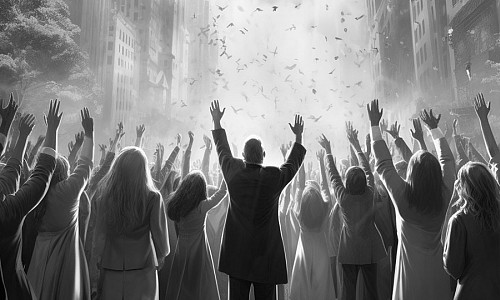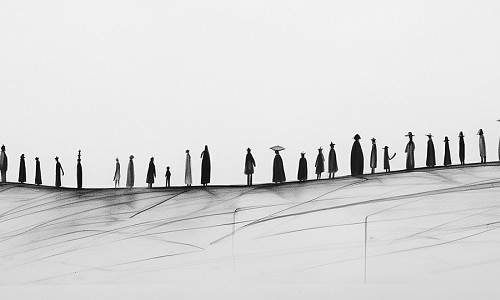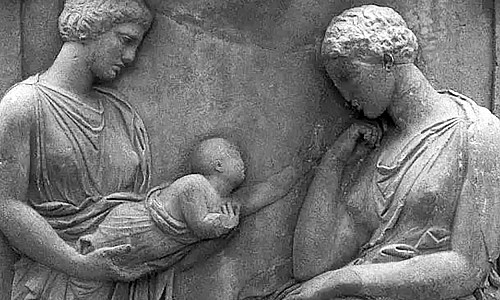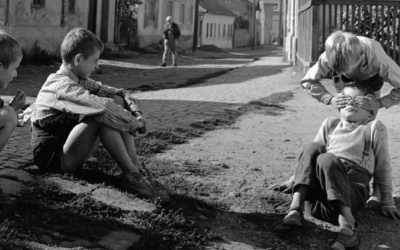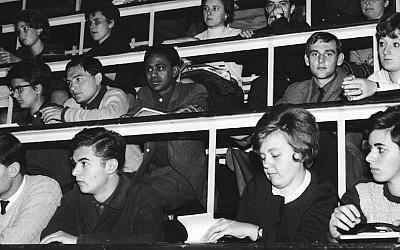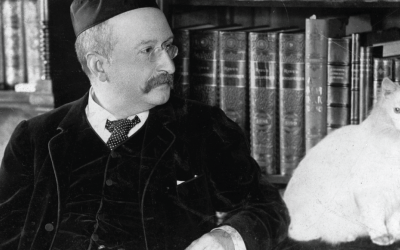Benjamin Nelson on philosophical rabbits and their quest to understand the character of moral claims.
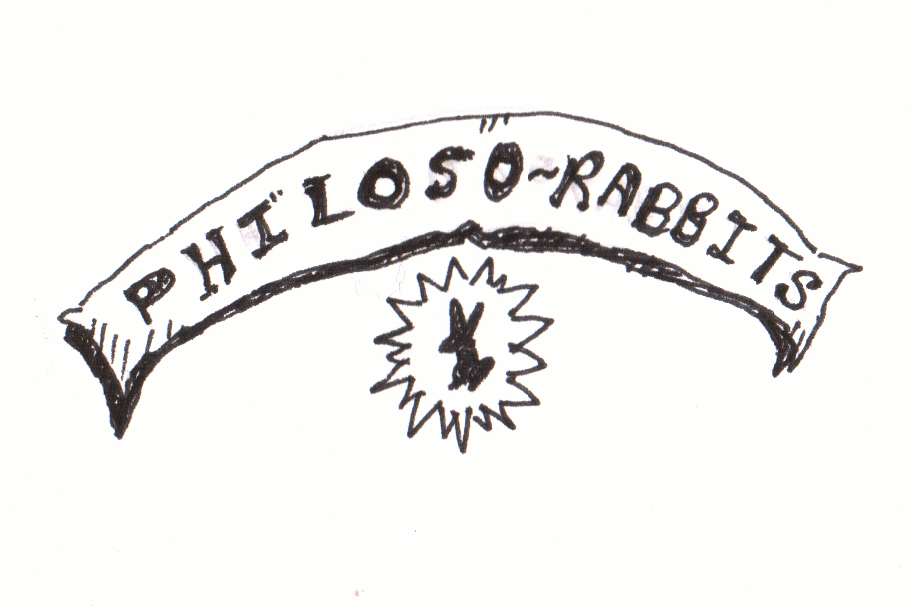

Andrei and Leila were on a walk when they came upon a sign.
When the rabbits stopped for pause, Andrei was ready to opine:
"I do not know who made this ugly thing", said Andrei (with quite a fuss).
"Who says we ought not walk on the grass? How come the grass is not for us?"
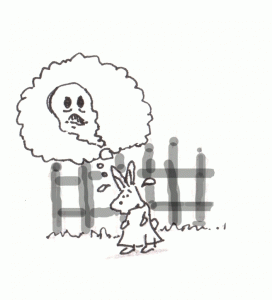
"I do not know," Leila said, ready at his wing.
"I suppose that we could go ahead and ask the author of the thing.
...But I do not know the author's name, address, or anything even close.
For all I know, the author may have been a god, a man, or maybe even ghost."
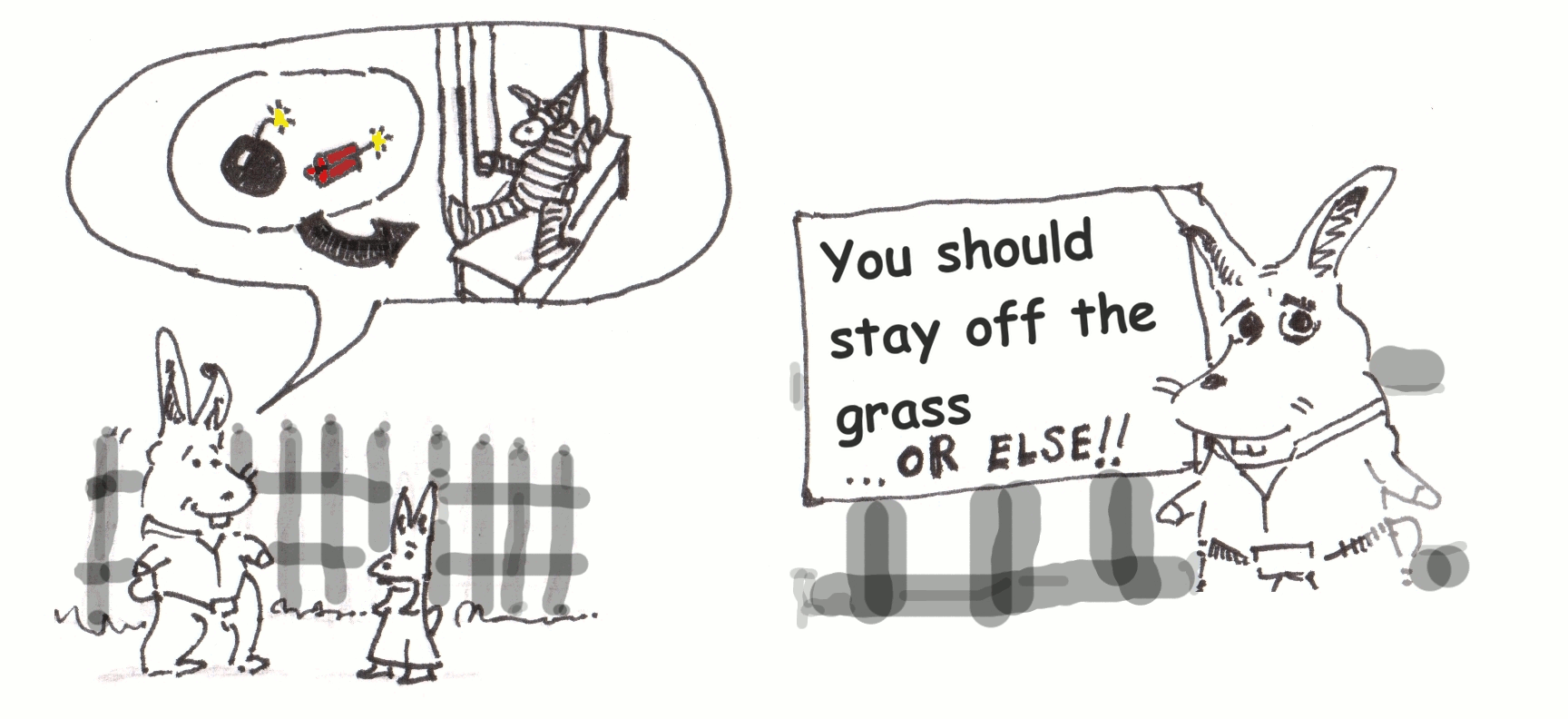
"That I doubt," said Andrei. "And perhaps we do not even need to know,
who it was that wrote this sign and put it up for show.
The only thing we need is to know what makes it true.
And I say that -- if the sign's advice is correct -- it is good for me and you.
Perhaps the grass is where the farmer hides his bombs and dynamite.
The sign is there to decrease our harm and increase in our delight."
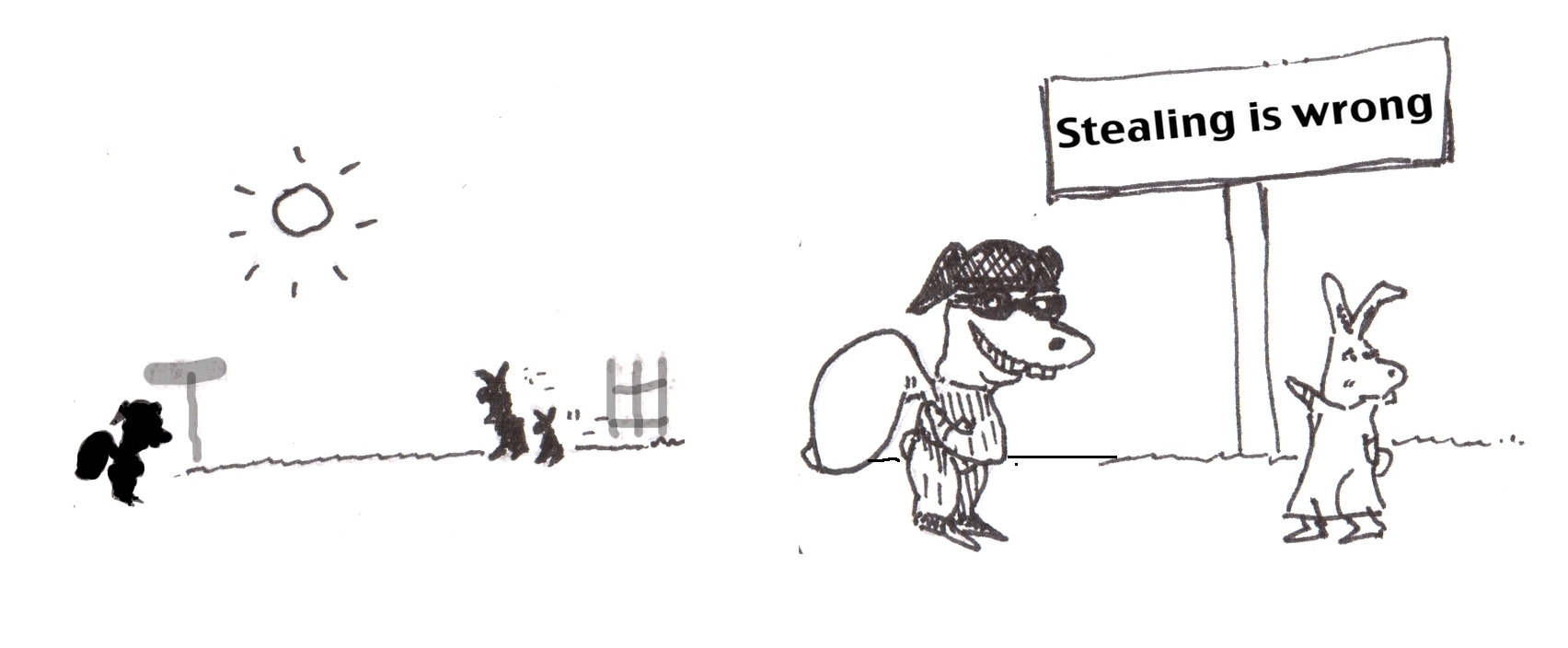
Satisfied, the rabbits continued walking, and got further down the way.
As they walked, a brand new sign was by the road, looming large in the mid-day.
But lurking below the sign was a low-down dirty thief,
Eavesdropping upon the rabbits, prepared to give them grief.
"Consolation for my victims, yes -- and hence, these signs are true;
they are well suited for the credulous, for idiots, and for buffoons.
But I am no fool, so I will keep acting in whatever way I think is best,
So I will ignore these quaint suggestions, and let loose upon the rest."
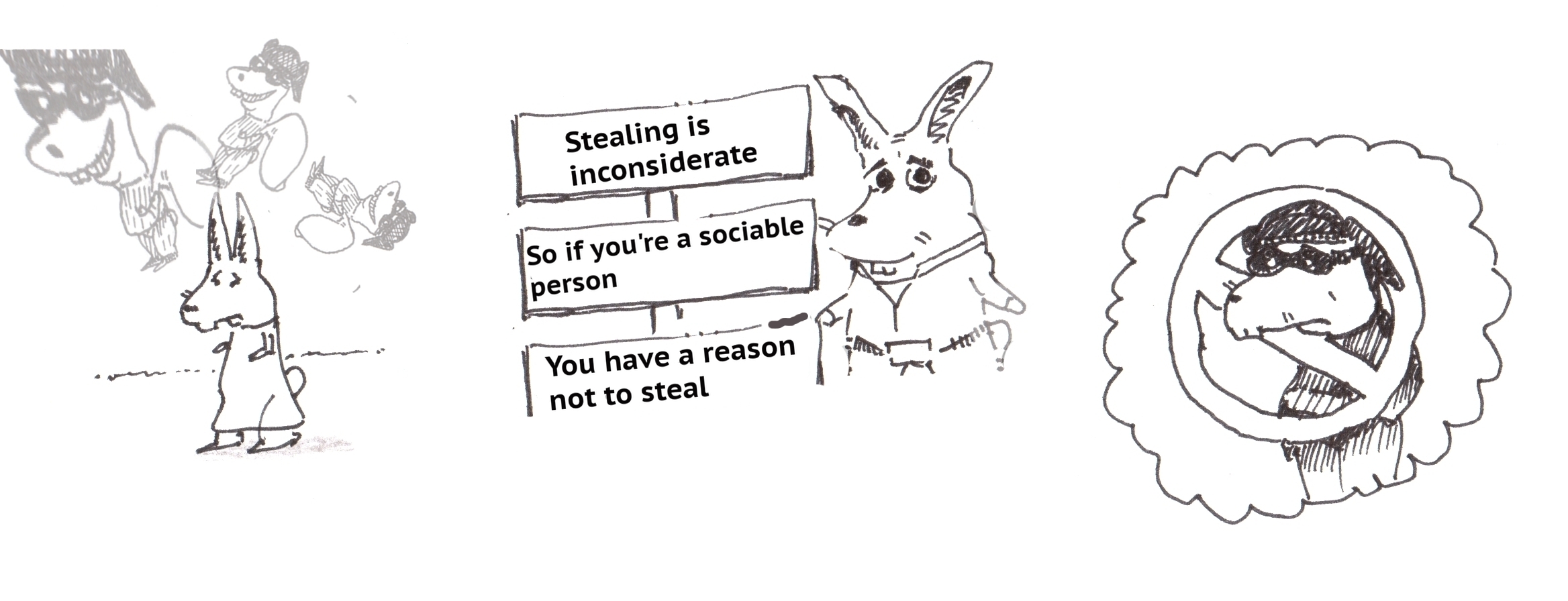
"It is plain enough," said Leila, "That your victims suffer.
They lose the things that they once had, and this makes their lives much tougher."
Leila wavered then, haunted by his words.
"But I see your point -- why should anyone be moral if being moral is for the birds?"
"Ah," says Andrei, "Well, I guess it depends on who you are.
If you are an anti-social goon, these signs will not take you very far.
So whenever a psycho nutter says, "What is morality to me?"
They do not have a need for trust, so no answer can be gleaned.
But if our new friend has a social bent, we say another thing:
'Your reason to not steal is that you are a social be-ing.'"
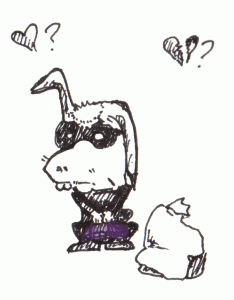
"Hmm," said the thief. "Alright, I admit that there's some reason not to steal.
I just don't know why you believe reasons obscure less than they reveal.
But perhaps, to see my point, you'd best follow me further up the hill,
To meet a friend of mine, whose name is Jack-Bill."

On and up the hill they went, the three marched all in a line,
And at the top they met a creature that made the rabbits want to hide.
The thing they met was an abomination, a fluffy monster with two heads,
And either head spoke the contrary of what its neighbor said.
Said the thief to the creature: "Hullo, Jack-Bill -- what say you to stealing?"
"It makes me giddy," said the head of Bill. "No! Never!," said Jack, "It leaves me reeling!"
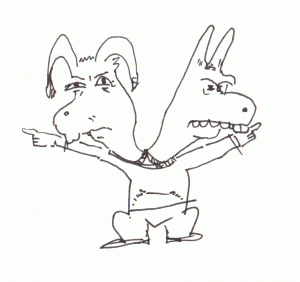
"So you see," said the thief, turning back to the troupe.
"All your talk of reason-this and reason-that? It's just a lot of goop.
Despite their frightening looks, Jack-Bill is very nice.
We can call him "moral", "pro-social", or whatever you would like.
So moral claims aren't really 'true' or 'false' when you get down to the brass tacks.
When we say a thing is moral we mean "hooray," and when immoral, "boo to that".
---
"Alright," said Leila. "There's no need to get too pensive --
Jack-Bill is incoherent, his capriciousness offensive."
"Well, look," said the thief, increasingly distressive.
"Like I said before, in words which you did not find impressive:
for me to say a moral claim is true, is to say to it that I consent.
For otherwise, I would have to defer to those whose brains are daft and bent."
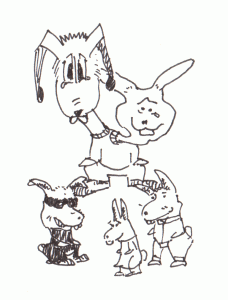
Andrei was quiet for a time, as if he were imitating mice:
and said, "That's just fine, my new friend -- but would you go to them for advice?
If not -- if their lack of due deliberation makes for over-wrought demands --
Then they are not to be trusted, they can give you no commands.
So you trust yourself as final arbiter, when in the company of fools,
But that is only reason to make sensible friends, not to abandon all the rules."
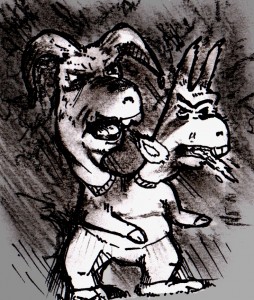
At this point, Jack-Bill roared as loud as seven oceans.
"I have ears, you know," Bill said. "You hurt my emotions!"
Just then, the thief looked at Jack, waiting patient with a smirk.
Unexpectedly, Jack stared their way and said, "Actually, I agree with Bill -- you're all jerks."
With that, they both breathed fireballs, and the other rabbits ran away.
Though later on, something happened in the coldest hours of the day...
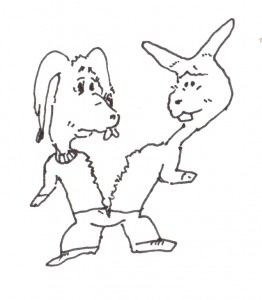
Jack-Bill talked more to himself, exploring his sense of rational will,
And by degrees Jack-Bill split into two, creating Jack and Bill.
While before they had been united, when both indulged their inclinations,
Now, they found that talk in reasons made for healthier relations.
As time went on, it was not so hard for each to have their own perspectives,
Where earlier each were caught providing in rudderless correctives.
---
The trio ran and ran, into the forest deep,
and along the way, as they ran, Andrei and Leila lost the thief.
Andrei was bewildered at the canopy, and shivered at spooky sounds,
While Leila (made of sturdy stuff) offered to look around.
Alas, getting lost herself, the dark and dank surrounded,
The owls screeched out in hoots of despair, her direction was confounded.
She looked to and fro, and everywhere, the world looked all the same,
On the left there was little light; and to the right, the same.
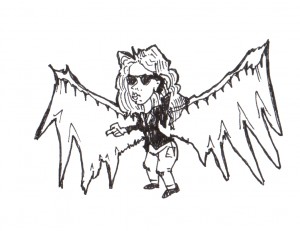
Presently, however, she glimpsed a burning light:
A fairy, bright and blue, kept darting in and out of sight.
"Psst," said the fairy, with a no-nonsense business sense.
"If morals are just good advice, it only works when between friends.
But out here in the darkness, the forest is unkind,
It picks off little strangers who are lost, unwary, and blind.
If moral claims are true, they would not be much good,
They would apply to your relations with your friend, but mean nothing in these woods."
---
"Help me, then!" cried Leila. "We could really use a hand!"
"I would be glad to help," the fairy replied. "My services are in high demand."
"Indeed, for a low price of nine dollars and thirty cents,
My associates and I can get you out of this predicament.
So would you like to pay by cash, or cheque, or credit card?
Keep in mind, the offer is limited, so be sure to think fast and hard."
"But I have no funds," said Leila. "We're lost and all alone!
Can't, from the kindness of your heart, you just direct me to a phone?"
---
But no: the fairy receded back
into the inky black.

And Leila was left there waiting in the cold canopy,
And the leaves twisted back and forth, as if a dark conspiracy.
The dusk settled upon the land,
And two wayward rabbits sat alone, each waited for the end.
---
And whatever happened next,
depends mostly on you.
What makes the fairy wrong?
What can the rabbits say or do?
B.L.S. Nelson is working towards a PhD in philosophy at the University of Waterloo.
You might also like...


